Second-Life Sofas Show First-Rate Style
When it comes to the decorative arts, the Victorian era is endlessly interesting. The Victorians themselves have a reputation for being as restrictive as the whalebone corsets many women wore to achieve wasp waists. But although their morals and social customs were rigid, the Victorians’ love of ornamentation knew few bounds.
This was also the dawn of the industrial age, so factories were producing highly carved furniture at a never-before-seen clip. As styles changed, those pieces became unfashionable, and for years vintage furniture shoppers could find them in stores, in flea markets and online for relatively little money.
Personally, I think this may be why we are seeing so many reimagined Victorian sofas (or settees, as those in the era would have called them) in modern interiors these days. After all, a tried and true recipe for interior design surprise and delight is to take the most out-of-date item imaginable (which usually equates to inexpensive) and put a fresh face on it.
Related: How to Work With an Upholsterer
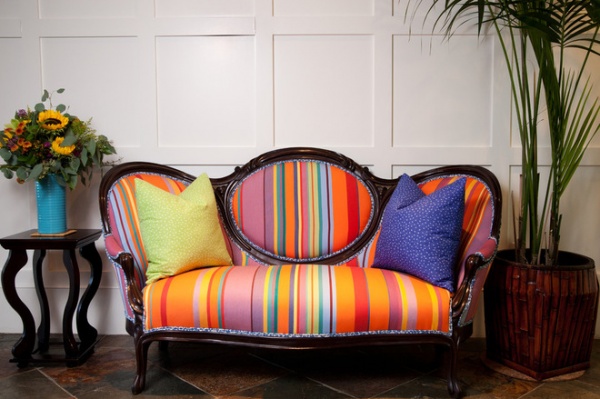
This sofa was a family heirloom, but Darci Goodman Design made it work for the current generation by giving it a colorful upholstery.
According to an article in Antiques Digest, “The History of Victorian Furniture,” this sofa is typical for its time: “The period was characterized by curved legs, scrolled and rounded corners forming a cartouche back, and naturalistic carvings of roses, grapes, leaves and birds.”
Perhaps you have never heard the term “cartouche back” before. It’s a very rounded back as part of an ornate frame — in other words, the iconic, unmistakable shape of a Victorian sofa. The moniker is said to come from the oval, shield-like shapes that surround Egyptian hieroglyphics.
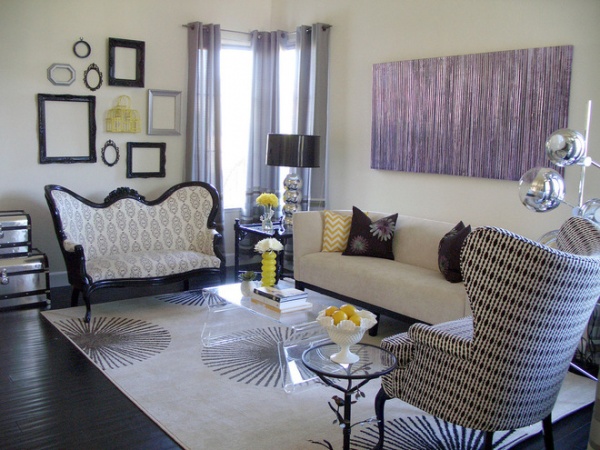
Interior designer Nina Jizhar gave vintage pieces contemporary upholstery to help them live in this modern interior. The sofa features a hallmark of classic Victorian settees: a garland of carved wooden flowers in the center.
Settee upholstery: Gingko, SwankySwell
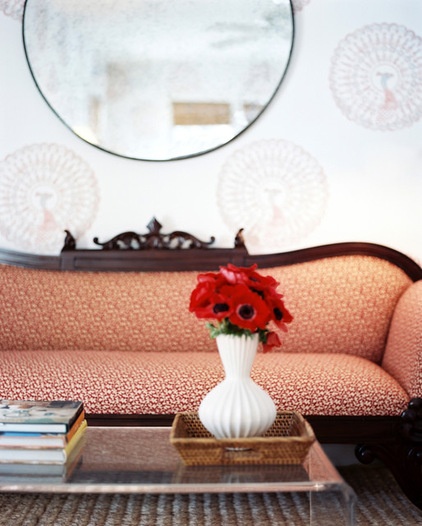
A principal at Tilton Fenwick played with the juxtaposition of an elaborate shape from yesteryear and upholstery for today in her Woodstock, New York, home. “We embraced the culture unique to Woodstock, where self-expression is in the air,” says interior designer Suysel dePedro Cunningham. The original owners couldn’t have imagined that their parlor settee would someday be fronted by a Lucite table, as the acrylic material was invented more than 100 years after they sat here sipping tea.
Peekaboo Clear Coffee Table: CB2
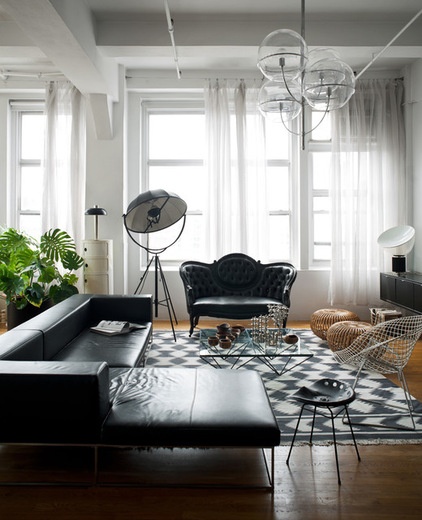
Studio Recreation gave a Victorian-style sofa an edgy look with black leather upholstery. It looks right at home in this New York City loft.
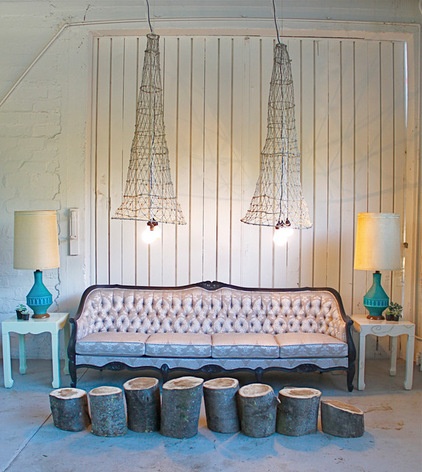
Not every settee has to wear leather to achieve a mod look. Red, a vintage store in Texas, gave this classic sofa a more traditional upholstery. Its context, not its covering, gives it modernity.
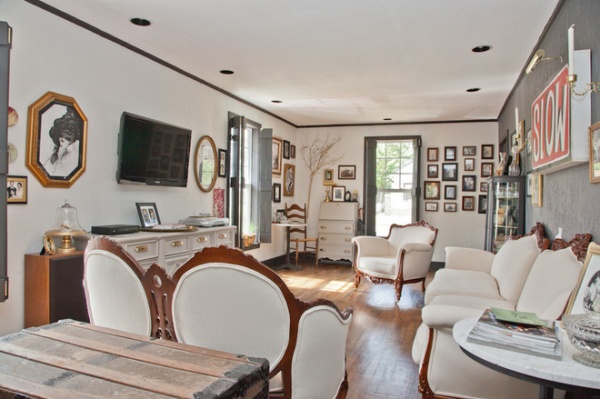
The first time I saw this design strategy — covering ornate Victorian furniture with plain, white canvas upholstery — it blew my mind. It still does today. The effect is like a modern art installation, one that transforms fussy into simple and draws your eye to the shapes of the frames.
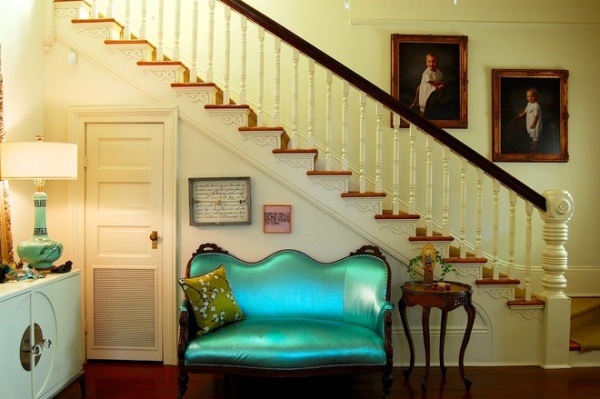
A similar move involves covering the sofa with upholstery that lacks a print but packs a color punch. For this sofa the homeowner chose teal patent leather.
See more of this house
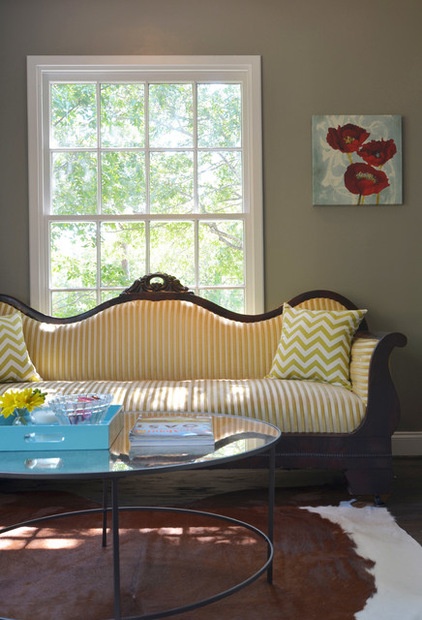
The takeaway is simple: You can start life as prim and proper, but you don’t have to end it that way. These centenarians are still rocking the house.
See more of this elegantly updated Dallas home
Great sofas in history: Abraham Lincoln Sat (and Flirted) Here












